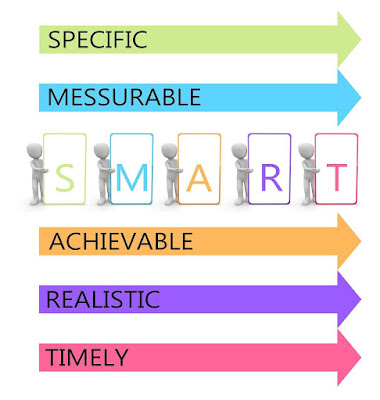Redefining Our Relationship With Technology in 2026
Technology doesn’t announce its influence—it settles quietly into our routines. We check our phones before getting out of bed, switch between tabs throughout the day, and scroll late into the night without realizing how much time has passed. Over time, these small habits shape our focus, productivity, and mental health in powerful ways. What once felt like convenience can slowly turn into constant distraction and mental fatigue.
As 2026 begins, many of us feel the desire to reset how we live and work—and that includes how we use technology. But this reset doesn’t need to be extreme. Going completely offline or deleting every app often leads to frustration rather than balance. The new year offers something more sustainable: a chance to become intentional about our digital habits instead of reactive.
This year, the goal isn’t to fight technology but to redefine our relationship with it. When used consciously, technology can support learning, creativity, and connection. When used mindlessly, it quietly steals attention and peace of mind. In 2026, the real shift is learning to use technology as a tool that supports our life—not a distraction that controls it.
1. Practice Conscious Screen Time (Not Just Less Screen Time)
The idea of “less screen time” is popular, but it’s often misleading. Not all time spent on screens is harmful or unproductive. Reading an article that inspires you, learning a new skill, or having a meaningful conversation online can be deeply valuable. The real problem isn’t the amount of screen time—it’s the lack of awareness behind it.
Conscious screen time means using technology with intention rather than habit. It’s the difference between opening an app for a clear purpose and finding yourself scrolling simply because you’re bored, stressed, or avoiding something uncomfortable. When we become aware of why we reach for our devices, we regain control over how we use them.
A helpful way to start is by distinguishing between high-value and low-value digital activities. High-value activities leave you feeling informed, connected, or accomplished. Low-value activities, on the other hand, often leave you drained, distracted, or wondering where the time went. The goal isn’t to eliminate low-value activities completely, but to prevent them from dominating your day.
Building this awareness doesn’t require strict rules. Simply checking your screen-time data with curiosity, pausing briefly before opening social media, or noticing how different digital activities make you feel can create powerful shifts. Over time, conscious screen use becomes second nature—helping you improve focus, protect mental energy, and make technology work for you instead of against you.
2. Build a Morning Routine Without Immediate Phone Use
The way you start your morning often sets the tone for the entire day. Reaching for your phone as soon as you wake up may feel harmless, but it immediately pulls your mind into a reactive state. Notifications, emails, and social media expose your brain to other people’s priorities before you’ve had a chance to check in with your own. This early mental clutter can increase stress, reduce focus, and make the day feel rushed before it has even begun.
Creating a phone-free window in the morning—ideally 30 to 60 minutes—allows your mind to wake up naturally. This space helps you transition into the day with clarity rather than urgency. You don’t need a perfect routine or an early wake-up time; even a short, intentional pause from screens can significantly improve mood and attention. Over time, this habit trains your brain to associate mornings with calm and purpose instead of constant input.
What you do during this time matters less than how it makes you feel. Journaling can help organize thoughts and set intentions for the day ahead. Planning your tasks creates a sense of direction and reduces decision fatigue later. Light reading, stretching, or a short walk allows your body and mind to warm up without external pressure. These activities ground you in the present moment and encourage a more mindful start to the day.
By delaying phone use in the morning, you reclaim the first part of your day for yourself. It’s a small shift, but one that can lead to better focus, improved emotional balance, and a stronger sense of control over your time—qualities that are especially valuable as we move into 2026 with greater intention.
3. Curate Your Digital Environment
Just as our physical surroundings affect our mood and focus, our digital environment shapes how we think and behave every day. The accounts we follow, the emails we receive, and the apps we keep within easy reach all influence where our attention goes. When this environment is cluttered, our minds often feel the same way.
Curating your digital space starts with intentional unfollowing, muting, and unsubscribing. This isn’t about negativity or cutting yourself off—it’s about choosing what deserves your attention. If certain content consistently makes you feel anxious, distracted, or unmotivated, it may not belong in your daily digital diet. Over time, a cleaner feed can feel surprisingly calming and make room for content that truly informs or inspires you.
App organization plays a quiet but powerful role in reducing impulsive scrolling. When distracting apps are placed front and center, they become the default response to boredom or stress. Simply moving these apps off your home screen, grouping them into folders, or limiting how often you see them can create a pause between impulse and action. That pause is often enough to help you choose differently.
Notifications deserve the same level of intention. Every alert is a demand for attention, yet most of them are not urgent or necessary. Turning off non-essential notifications transforms them from constant interruptions into conscious choices. In 2026, protecting your attention isn’t about being unreachable—it’s about deciding when and how others can reach you.
4. Adopt Deep Work Blocks in a Distracted World
In a world of constant alerts, true concentration has become rare—and increasingly valuable. Deep work refers to focused, uninterrupted periods where your attention is fully engaged in meaningful tasks. In 2026, cultivating this ability is less about discipline and more about designing an environment that makes focus possible.
Time blocking is one of the simplest ways to protect deep work. By setting aside specific periods for focused tasks, you reduce the mental energy spent deciding what to do next. Pairing these blocks with focus modes or “do not disturb” settings creates a clear boundary between deep work and reactive tasks like messages or emails.
Technology itself can support deep work when used intentionally. Features like focus modes, app blockers, and notification filters help minimize interruptions during concentration-heavy tasks. The goal isn’t to eliminate distractions permanently, but to create pockets of uninterrupted time where your mind can work at its best.
When practiced consistently, deep work blocks lead to higher-quality output, reduced stress, and a stronger sense of accomplishment. In a distracted world, the ability to focus deeply isn’t just a productivity skill—it’s a competitive advantage and a form of self-care.
5. Be Intentional With Social Media Consumption
Social media isn’t inherently harmful, but mindless use can quietly drain time and emotional energy. Endless scrolling often happens without a clear purpose, leaving us feeling distracted, overstimulated, or dissatisfied. Being intentional with social media means shifting from passive consumption to active, meaningful engagement.
Purposeful use begins with clarity. Instead of opening an app out of habit, pause and ask what you’re actually looking for—information, inspiration, connection, or entertainment. When social media is used with intention, it can become a valuable tool for learning, networking, and creativity rather than a source of comparison or stress.
Setting time limits can support healthier habits without guilt or rigidity. These boundaries aren’t punishments; they’re protective measures that help preserve focus and mental well-being. Whether it’s a daily time cap or designated check-in moments, limits work best when they’re flexible and aligned with your lifestyle, not driven by shame.
The quality of content you consume matters just as much as the time you spend online. Choosing to follow accounts that educate, inspire, or foster genuine connection can transform your feed into a space that supports growth rather than distraction. When curated thoughtfully, social media becomes something you use—not something that uses you.
6. Strengthen Digital Boundaries for Better Mental Health
Constant connectivity blurs the line between work and personal life, making it difficult to fully rest or recharge. Without clear digital boundaries, messages and notifications can create a sense of urgency that never truly switches off. Over time, this can lead to stress, burnout, and emotional exhaustion.
Separating work and personal digital spaces is one of the most effective ways to restore balance. Using different apps, accounts, or even devices for work-related communication helps your mind recognize when it’s time to focus and when it’s time to rest. This separation reduces the mental spillover that often follows us into evenings and weekends.
Creating offline hours—especially in the evening—allows your nervous system to slow down. Turning off notifications, putting devices away, or switching to low-stimulation activities helps signal the end of the day. These quiet moments improve sleep quality and create space for reflection, relaxation, or meaningful connection with others.
Finally, learning to respond rather than react to messages is a powerful skill. Not every notification requires an immediate reply. By pausing before responding, you regain control over your attention and emotional energy. In 2026, strong digital boundaries aren’t about being unreachable—they’re about being present where it truly matters.
7. Upgrade Your Digital Learning Habits
The internet offers endless opportunities to learn, but without intention, digital learning can easily turn into passive consumption. Watching videos back-to-back or saving articles you never return to may feel productive, yet often leads to information overload without real growth. Upgrading your digital learning habits means shifting from consuming content to actively building skills.
Using online resources with a clear purpose makes learning more effective and fulfilling. Instead of scrolling through random tutorials, identify specific skills or areas you want to improve and seek content that directly supports those goals. This approach transforms digital platforms into powerful learning tools rather than sources of distraction.
Quality matters more than quantity when it comes to courses, videos, and podcasts. A few well-chosen resources that align with your goals will always be more valuable than endless content that lacks depth. Taking notes, reflecting on what you learn, and applying ideas in real life helps turn information into meaningful progress.
Scheduling time for intentional learning ensures it doesn’t get lost in daily routines. Whether it’s a weekly learning block or a short daily session, consistency builds momentum. In 2026, treating learning as an intentional practice—rather than a background activity—can lead to lasting personal and professional growth.
8. Review and Reset Your Digital Life Regularly
Digital habits evolve quietly, often without our awareness. Apps accumulate, subscriptions renew automatically, and routines form around tools we no longer need. Without regular reflection, technology can drift from being helpful to being overwhelming. That’s why reviewing and resetting your digital life is essential.
Monthly or quarterly digital check-ins create space to pause and reassess. These moments don’t need to be complicated. Simply reviewing screen time, app usage, and notification settings can reveal patterns that no longer align with your priorities. Awareness alone often leads to healthier choices.
Reassessing the apps, tools, and habits you use allows you to let go of what no longer serves you. Deleting unused apps, unsubscribing from unnecessary content, or adjusting settings can restore clarity and focus. Digital life, like physical space, benefits from regular decluttering.
Most importantly, digital habits should adapt as your life changes. What worked during one season may not work in another. By staying flexible and reflective, you ensure that your relationship with technology continues to support your goals, well-being, and growth—well beyond 2026.
Make Technology Work for You in 2026
As we step into 2026, it’s time to rethink our relationship with technology. Digital habits aren’t just resolutions to start and forget—they’re long-term choices that shape how we focus, create, and connect every day. The small, intentional changes you make now will ripple through your year, quietly improving your clarity, balance, and productivity.
Perfection isn’t the goal. Progress is. Whether it’s slowing down your morning scroll, setting boundaries, or choosing content that inspires, each small step moves you closer to a digital life that serves you—not distracts you.
This year, don’t aim to use less technology. Aim to use it better. Make your devices tools for growth, creativity, and connection. When technology supports your priorities rather than steals your attention, every day becomes a little more focused, calm, and intentional—exactly the kind of start 2026 deserves.
Thank You For Your Time & Consideration…
@Puja Singh…











































































